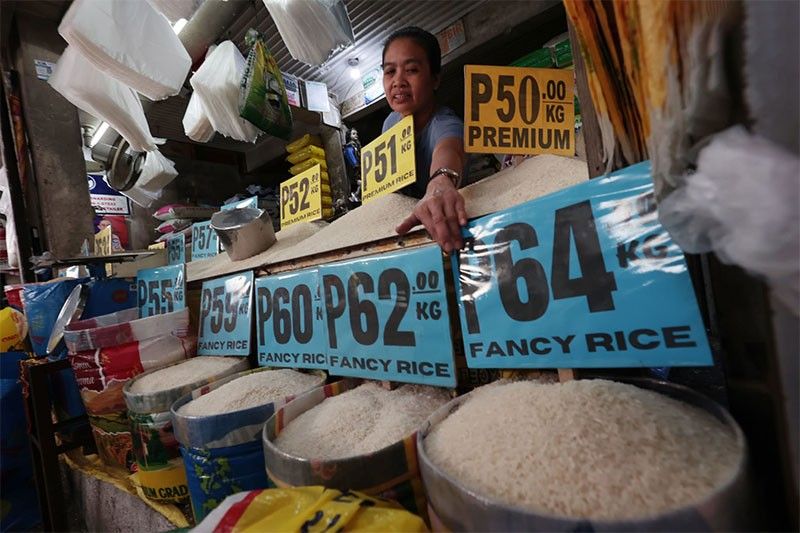DA backs resolution calling for food security emergency to lower rice prices

MANILA, Philippines — The Department of Agriculture (DA) backed the National Price Coordinating Council’s (NPCC) resolution urging the declaration of a food security emergency for rice.
Agriculture Secretary Francisco Tiu Laurel Jr. said in a statement on Thursday, January 16, that the approved resolution is a “critical move” to ensure rice prices become affordable.
Both imported and local rice, regardless of grade, have reached alarming price levels ranging from P50 to P60 per kilogram in Metro Manila markets.
This price surge has raised concerns, prompting the House of Representatives to investigate agricultural smuggling, price manipulation and potential collusion between rice traders and retailers.
The Department of Trade and Industry (DTI) Secretary Cristina Roque, who chairs the NPCC, explained that the resolution would help protect consumer welfare while supporting local farmers.
“This declaration empowers the DTI to take decisive action in protecting consumer welfare while strengthening our nation’s agricultural backbone,” she said in a statement.
But what does this mean? Declaring a food security emergency would trigger the release of buffer stocks of locally produced rice from the National Food Authority (NFA) to stabilize prices.
This power was granted to the DA under Republic Act 12708, or the Agricultural Tariffication Act, signed into law on Dec. 9, 2024.
A buffer stock is the government’s reserve of rice used for relief operations and to address food security emergencies. Under the new law, the DA can sell these stocks in areas facing rice shortages or extraordinary price increases.
To replenish the buffer stock, the NFA will source new rice from local farmers and cooperatives.
Since the passage of Republic Act 11203, or the Rice Tariffication Law, the NFA's ability to regulate rice trading has been removed, and its role is now limited to procuring palay from local farmers and managing buffer stocks.
However, with the recent amendment to the Rice Tariffication Law, the DA has announced that the NFA’s capabilities will be temporarily expanded in the event of a food security emergency.
“The NFA currently holds 300,000 metric tons of rice in buffer stocks. Releasing these reserves would help decongest warehouses in preparation for the upcoming February harvest,” the DA said.
Other efforts. The DA also plans to cap the price of 5% broken imported rice at P58 per kilogram starting January 20, as part of their efforts to reduce local rice prices while ensuring that farmers are still able to earn.
However, the House joint committee investigating the rice price hike has criticized the P58 price ceiling, calling it “unrealistic” during a hearing on Wednesday, January 15.
Lawmakers said that some markets are selling rice as low as P40 to P45 per kilogram, with Kadiwa outlets offering rice at P40 per kilo as part of a government program.
DA Undersecretary Asis Perez clarified that the P58 price ceiling would apply only to a pilot program in Metro Manila.
Despite this explanation, some lawmakers remained unsatisfied, arguing that the price ceiling is based on inflated market prices rather than actual production costs.
- Latest
- Trending






























